PARTIES CLASH OVER PRESS ARBITRATION ACT
입력 2021.08.11 (15:30)
수정 2021.08.11 (16:47)
읽어주기 기능은 크롬기반의
브라우저에서만 사용하실 수 있습니다.
[Anchor Lead]
Rival parties are fighting over the revision of a law that stipulates media companies pay compensation of up to five times the claimed damage for reporting fake news. Here are some thoughts about this controversial issue from academics and press circles.
[Pkg]
Both academics and press groups have pointed out two main issues with the planned revision of the Act on Press Arbitration, currently being reviewed at the National Assembly. The first is the clause on the presumption of intentional or gross negligence. This clause assumes that when a media company breaks the law while reporting on a story, that company is assumed to have committed intentional or gross negligence. But this revision is accused of dramatically restricting the freedom of press and expression. If violating laws is presumed as gross negligence, the past reports on Samsung Group’s bribery scandal would have broken the law.
[Soundbite] Sohn Ji-won(OpenNet Attorney) : "This law could very well be abused as a strategic means to contain negative public sentiment. I think the containment effect would be greater than before."
Another controversial clause is the right to request restricted access to stories, which essentially allows deletion of news articles. Once this request is made, a news outlet is very likely to remove articles preemptively to defend itself against damage compensation suits.
[Soundbite] Hwang Yong-suk(Prof., Dept. of Media and Communication, Konkuk Univ.) : "Restricting article access has risks such as stigmatizing a media company simply with a request."
Rival party lawmakers fought over these issues yesterday at a meeting of the National Assembly’s Culture, Sports and Tourism committee without coming to an agreement.
[Soundbite] Park Jeung(Democratic Party) : "It’s a law that can help the victims."
[Soundbite] Kim Seung-su People Power Party) : "Why do you think advanced countries haven’t introduced such legislation?"
The Democratic Party, which hopes to pass the revision by the end of this month, may convene another committee meeting. In that case, the People Power Party says it will fight back by requesting an Agenda Coordination Committee meeting. However, the opposition camp would still be outnumbered by the DP. The Justice Party said that it decided to oppose the law, claiming that it cannot go along with the attempt to push through the legislation that failed to gain social consensus.
Rival parties are fighting over the revision of a law that stipulates media companies pay compensation of up to five times the claimed damage for reporting fake news. Here are some thoughts about this controversial issue from academics and press circles.
[Pkg]
Both academics and press groups have pointed out two main issues with the planned revision of the Act on Press Arbitration, currently being reviewed at the National Assembly. The first is the clause on the presumption of intentional or gross negligence. This clause assumes that when a media company breaks the law while reporting on a story, that company is assumed to have committed intentional or gross negligence. But this revision is accused of dramatically restricting the freedom of press and expression. If violating laws is presumed as gross negligence, the past reports on Samsung Group’s bribery scandal would have broken the law.
[Soundbite] Sohn Ji-won(OpenNet Attorney) : "This law could very well be abused as a strategic means to contain negative public sentiment. I think the containment effect would be greater than before."
Another controversial clause is the right to request restricted access to stories, which essentially allows deletion of news articles. Once this request is made, a news outlet is very likely to remove articles preemptively to defend itself against damage compensation suits.
[Soundbite] Hwang Yong-suk(Prof., Dept. of Media and Communication, Konkuk Univ.) : "Restricting article access has risks such as stigmatizing a media company simply with a request."
Rival party lawmakers fought over these issues yesterday at a meeting of the National Assembly’s Culture, Sports and Tourism committee without coming to an agreement.
[Soundbite] Park Jeung(Democratic Party) : "It’s a law that can help the victims."
[Soundbite] Kim Seung-su People Power Party) : "Why do you think advanced countries haven’t introduced such legislation?"
The Democratic Party, which hopes to pass the revision by the end of this month, may convene another committee meeting. In that case, the People Power Party says it will fight back by requesting an Agenda Coordination Committee meeting. However, the opposition camp would still be outnumbered by the DP. The Justice Party said that it decided to oppose the law, claiming that it cannot go along with the attempt to push through the legislation that failed to gain social consensus.
■ 제보하기
▷ 카카오톡 : 'KBS제보' 검색, 채널 추가
▷ 전화 : 02-781-1234, 4444
▷ 이메일 : kbs1234@kbs.co.kr
▷ 유튜브, 네이버, 카카오에서도 KBS뉴스를 구독해주세요!
- PARTIES CLASH OVER PRESS ARBITRATION ACT
-
- 입력 2021-08-11 15:30:08
- 수정2021-08-11 16:47:58
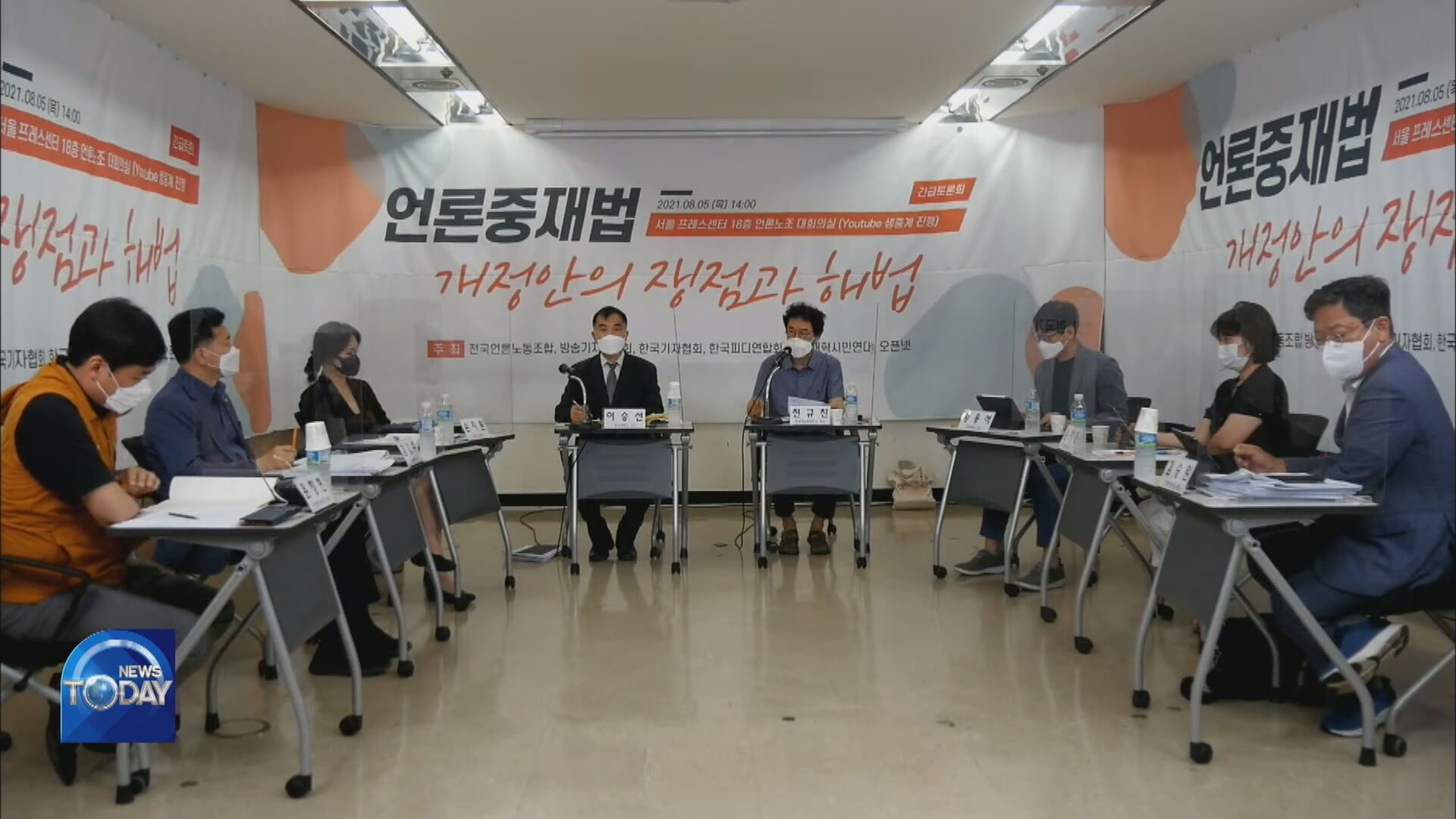
[Anchor Lead]
Rival parties are fighting over the revision of a law that stipulates media companies pay compensation of up to five times the claimed damage for reporting fake news. Here are some thoughts about this controversial issue from academics and press circles.
[Pkg]
Both academics and press groups have pointed out two main issues with the planned revision of the Act on Press Arbitration, currently being reviewed at the National Assembly. The first is the clause on the presumption of intentional or gross negligence. This clause assumes that when a media company breaks the law while reporting on a story, that company is assumed to have committed intentional or gross negligence. But this revision is accused of dramatically restricting the freedom of press and expression. If violating laws is presumed as gross negligence, the past reports on Samsung Group’s bribery scandal would have broken the law.
[Soundbite] Sohn Ji-won(OpenNet Attorney) : "This law could very well be abused as a strategic means to contain negative public sentiment. I think the containment effect would be greater than before."
Another controversial clause is the right to request restricted access to stories, which essentially allows deletion of news articles. Once this request is made, a news outlet is very likely to remove articles preemptively to defend itself against damage compensation suits.
[Soundbite] Hwang Yong-suk(Prof., Dept. of Media and Communication, Konkuk Univ.) : "Restricting article access has risks such as stigmatizing a media company simply with a request."
Rival party lawmakers fought over these issues yesterday at a meeting of the National Assembly’s Culture, Sports and Tourism committee without coming to an agreement.
[Soundbite] Park Jeung(Democratic Party) : "It’s a law that can help the victims."
[Soundbite] Kim Seung-su People Power Party) : "Why do you think advanced countries haven’t introduced such legislation?"
The Democratic Party, which hopes to pass the revision by the end of this month, may convene another committee meeting. In that case, the People Power Party says it will fight back by requesting an Agenda Coordination Committee meeting. However, the opposition camp would still be outnumbered by the DP. The Justice Party said that it decided to oppose the law, claiming that it cannot go along with the attempt to push through the legislation that failed to gain social consensus.
Rival parties are fighting over the revision of a law that stipulates media companies pay compensation of up to five times the claimed damage for reporting fake news. Here are some thoughts about this controversial issue from academics and press circles.
[Pkg]
Both academics and press groups have pointed out two main issues with the planned revision of the Act on Press Arbitration, currently being reviewed at the National Assembly. The first is the clause on the presumption of intentional or gross negligence. This clause assumes that when a media company breaks the law while reporting on a story, that company is assumed to have committed intentional or gross negligence. But this revision is accused of dramatically restricting the freedom of press and expression. If violating laws is presumed as gross negligence, the past reports on Samsung Group’s bribery scandal would have broken the law.
[Soundbite] Sohn Ji-won(OpenNet Attorney) : "This law could very well be abused as a strategic means to contain negative public sentiment. I think the containment effect would be greater than before."
Another controversial clause is the right to request restricted access to stories, which essentially allows deletion of news articles. Once this request is made, a news outlet is very likely to remove articles preemptively to defend itself against damage compensation suits.
[Soundbite] Hwang Yong-suk(Prof., Dept. of Media and Communication, Konkuk Univ.) : "Restricting article access has risks such as stigmatizing a media company simply with a request."
Rival party lawmakers fought over these issues yesterday at a meeting of the National Assembly’s Culture, Sports and Tourism committee without coming to an agreement.
[Soundbite] Park Jeung(Democratic Party) : "It’s a law that can help the victims."
[Soundbite] Kim Seung-su People Power Party) : "Why do you think advanced countries haven’t introduced such legislation?"
The Democratic Party, which hopes to pass the revision by the end of this month, may convene another committee meeting. In that case, the People Power Party says it will fight back by requesting an Agenda Coordination Committee meeting. However, the opposition camp would still be outnumbered by the DP. The Justice Party said that it decided to oppose the law, claiming that it cannot go along with the attempt to push through the legislation that failed to gain social consensus.
이 기사가 좋으셨다면
-
좋아요
0
-
응원해요
0
-
후속 원해요
0










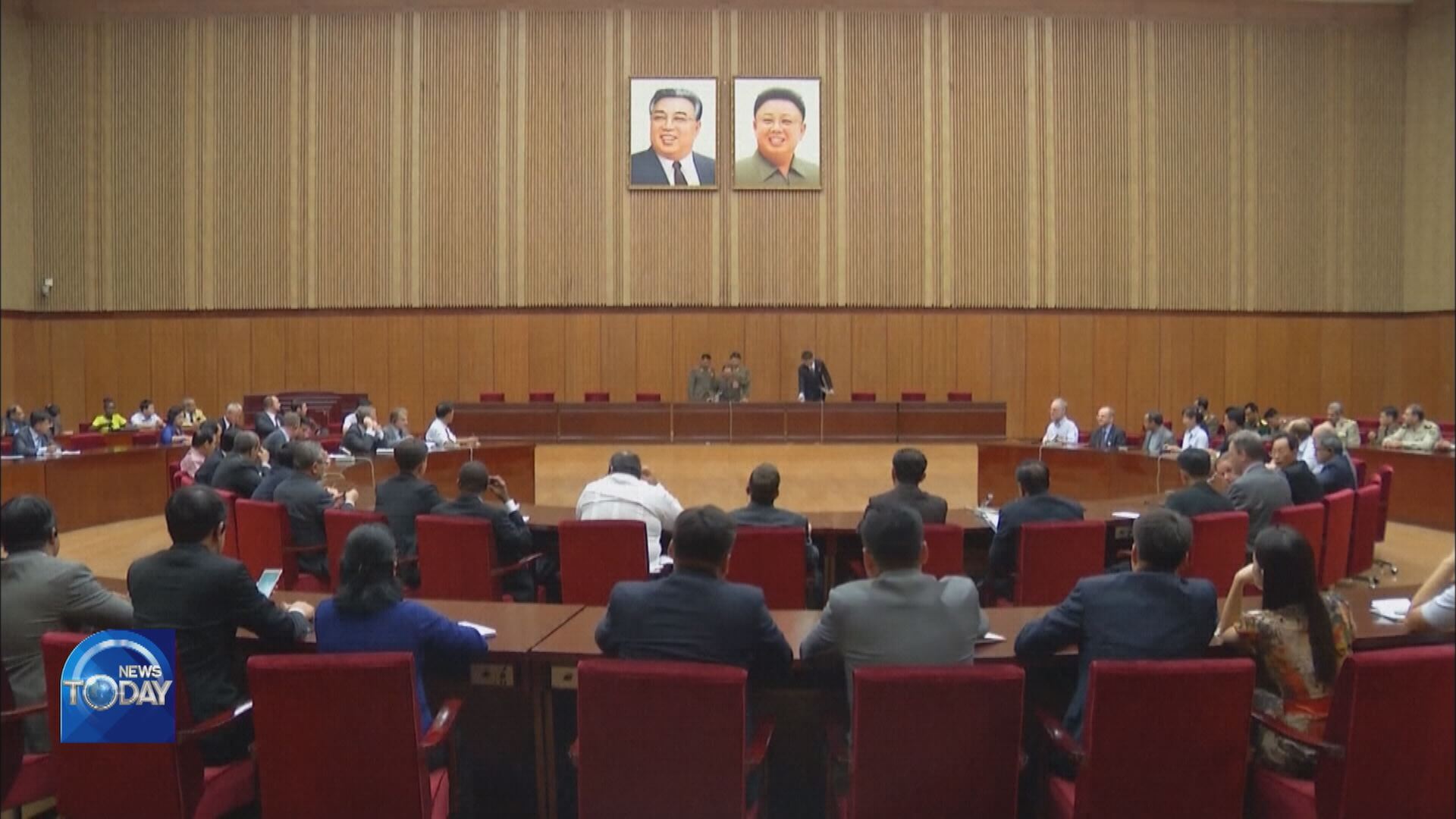
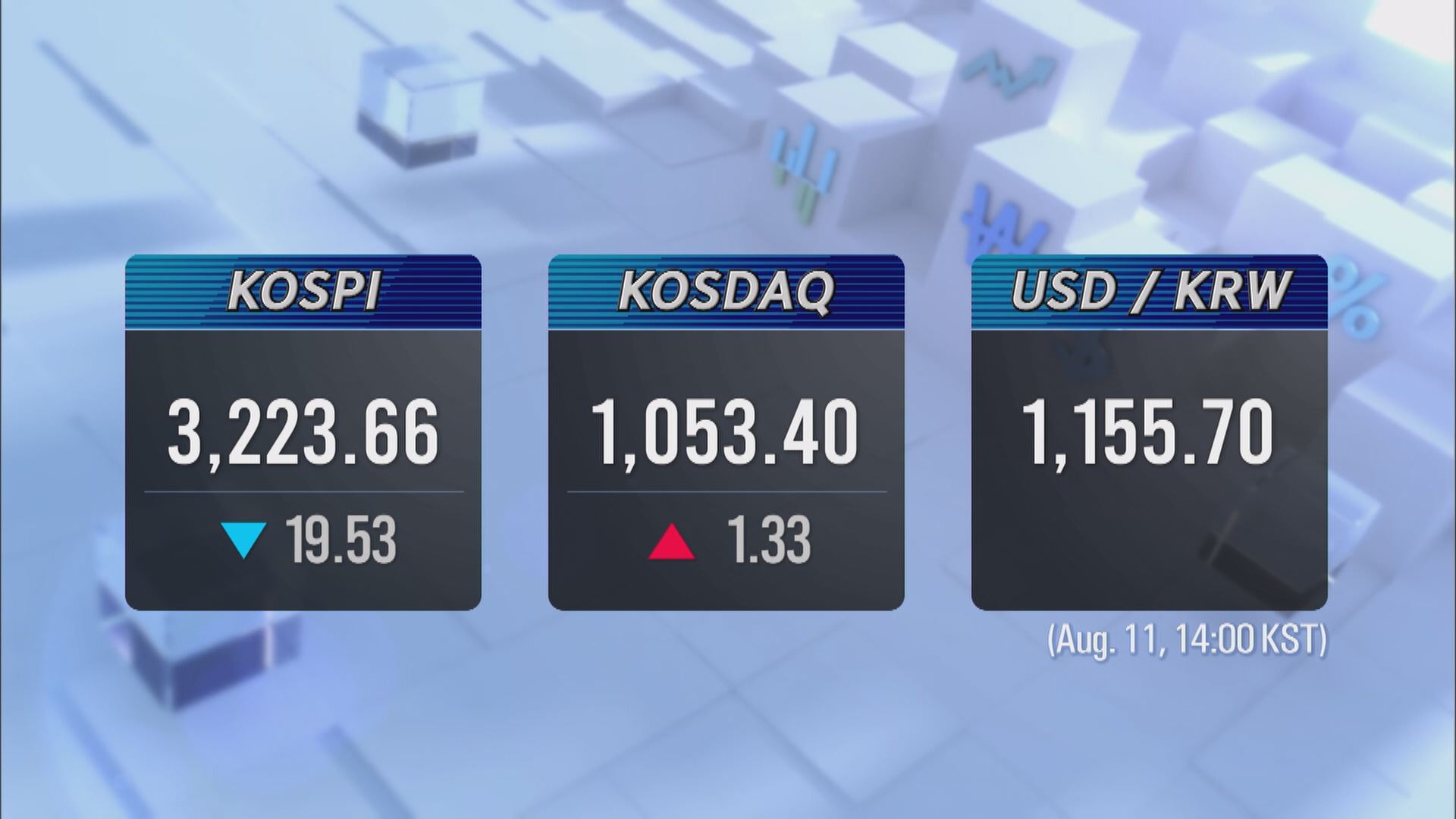
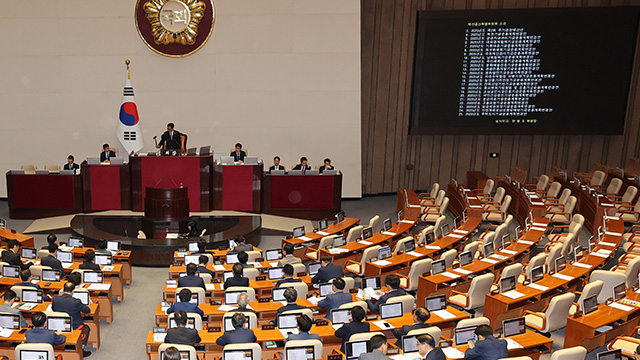
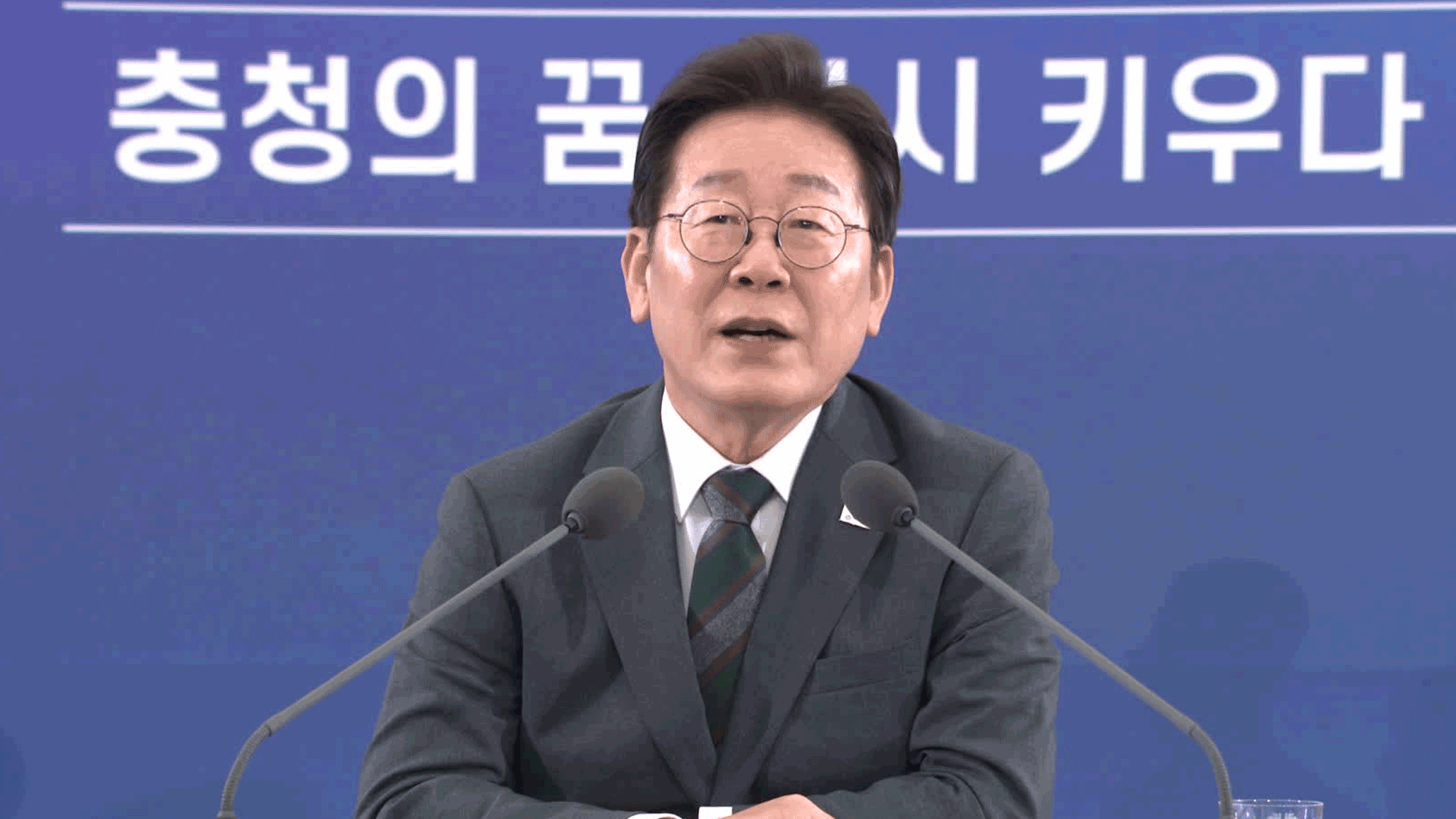
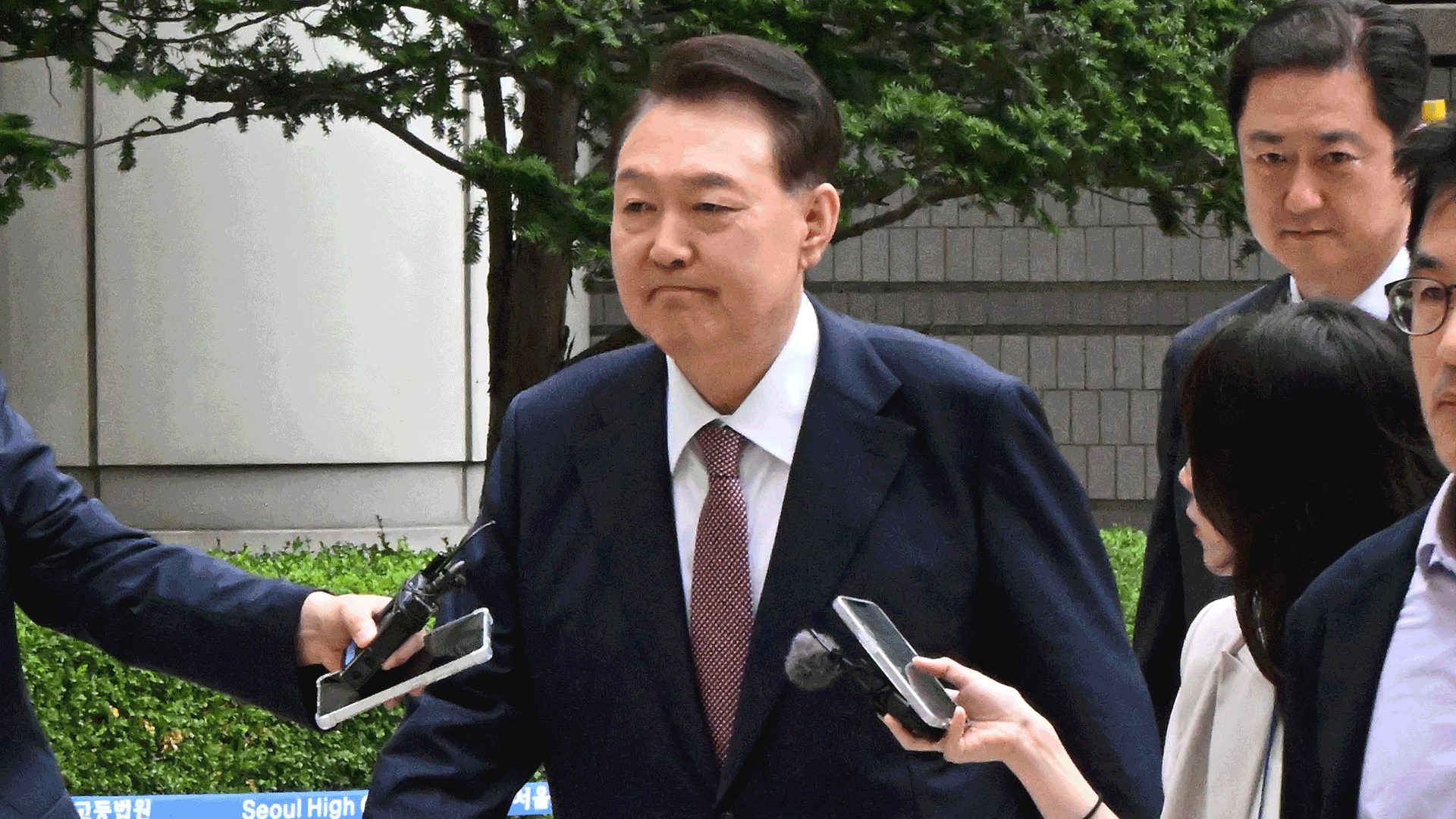
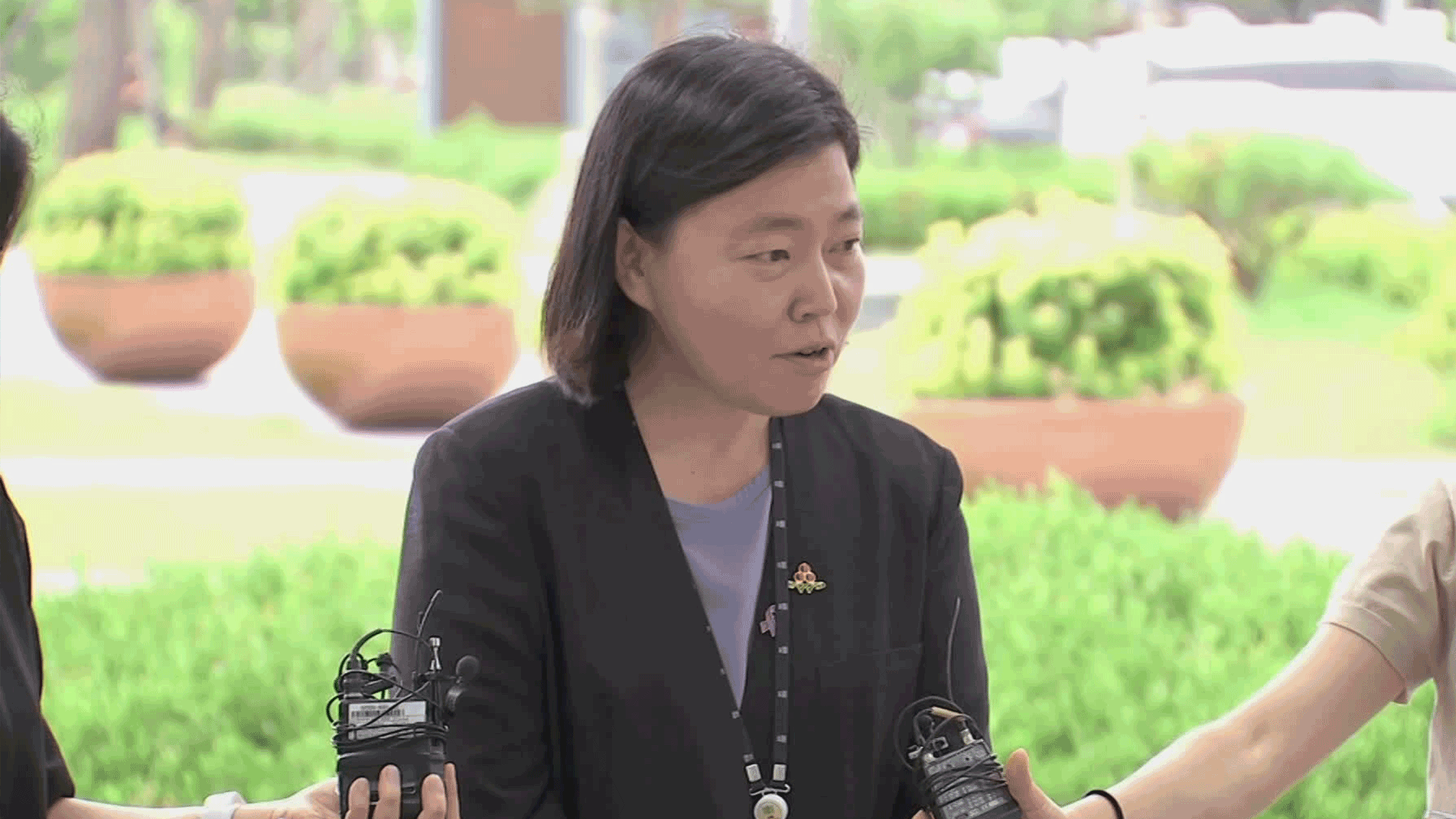

이 기사에 대한 의견을 남겨주세요.